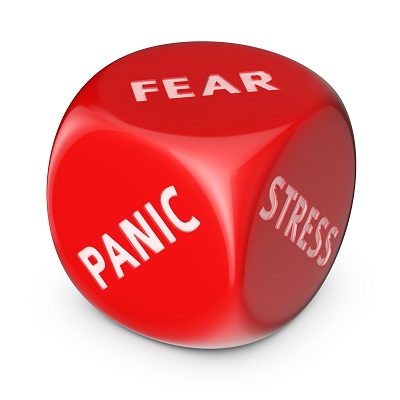Avoiding Alcohol to Cope with Stress During COVID-19: Healthy Options for Stress Relief
Avoiding Alcohol to Cope with Stress During COVID-19: Healthy Options for Stress Relief

There is a lot of anxiety surrounding the COVID-19 pandemic. Not only is there concern about getting sick, but financial strain, social isolation and uncertainty of the future are contributing to an increasingly concerned and nervous society. Many people have learned coping strategies to deal with anxiety, such as going to the gym, talking with friends and family, or attending peer support groups. Unfortunately, many of these supports have been eliminated or reduced due to social distancing requirements. The combination of global stress with restrictions on healthy coping strategies can lead to an increase in risky behaviours, such as consumption of alcohol and drugs to cope with COVID-19-related anxiety.
A recent report from the Canadian Centre on Substance Use and Addiction found that 18% of Canadians reported an increase in alcohol consumption while staying at home due to COVID-19.1 Twelve percent reported decreasing their alcohol intake, while 70% reported that is has remained the same. The major reasons for increasing alcohol included a lack of a regular schedule, stress and boredom. In addition, the same study reported 6% of Canadians have increased their cannabis use due to COVID-19, with 4% decreasing and 90% remaining the same. The same reasons, including lack of a regular schedule, stress and boredom were the most common reasons for the increase. While US statistics are not available, they are likely similar.
These numbers are important because increased alcohol and drug use can increase anxiety problems and potentially lead to a co-occurring substance use disorder. Our 2018 review paper2 summarized the evidence showing that those who report using alcohol or drugs to cope with feelings of anxiety or depression were more likely to go on to develop an independent substance use disorder. It is important to be cautious and aware of when a casual drink turns into a regular way to cope with stress. The Centre for Disease Control (CDC) dietary alcohol guidelines allow up to one drink a day for women and up to two drinks a day for men.3 Drinking in larger quantities and more often has the potential to lead to substance use problems.
There are many other healthy ways to deal with the anxiety surrounding COVID-19 and to combat the struggles of an irregular schedule, stress and boredom. Some recommended practices include 4,5:
- Choose what you listen to. An overload of information from multiple sources can be harmful for anxiety management. We recommend you limit your news consumption and check trusted sources such as the CDC and the World Health Organization. Avoid using comments from social media as your news source.
- Try to maintain a schedule. Maintaining a regular schedule can help reduce boredom and provide structure to the day. For those unable to work, planning ahead and blocking time to do regular activities can help to create a routine.
- Prioritize healthy eating, sleep and exercise. It is important to care for your basic needs, like getting enough sleep, eating well, and exercising outside or in the home. Now may be the time to try and online workout or yoga class or learn to cook with a new healthy ingredient. These things will help maintain physical and mental health.
- Practice self-compassion. Remember that it is natural to feel anxious and stressed during a pandemic and that these are not bad or wrong feelings. You may have intrusive thoughts such as “I’m not being productive enough” or “this will never end”. Comfort yourself the way you would a good friend by allowing your thoughts and feelings to be felt and heard. Then, practice breathing techniques6 and positive self-talk to help get through periods of heightened anxiety until the feelings resolve.
While using alcohol and drugs may be an attractive way of coping with COVID-19 anxiety, it can lead to greater problems in the long term. Engaging in healthy coping strategies, like the ones above, are effective for reducing anxiety and will encourage and promote mental health as the world deals with the COVID-19 pandemic.
References
- Canadian Centre on Substance Use and Addiction. Summary Report. 2020 April. Retrieved from: https://www.ccsa.ca/sites/default/files/2020-04/CCSA-NANOS-Alcohol-Consumption-During-COVID-19-Report-2020-en.pdf
- Turner S, Mota N, Bolton J, Sareen J. Self-medication with alcohol or drugs for mood and anxiety disorders: A narrative review of the epidemiological literature. Depress Anxiety. 2018;35(9):851–60.
- Centers for Disease Control and Prevention. Dietary Guidelines for Alcohol. 2019 December 30. Retrieved from: https://www.cdc.gov/alcohol/fact-sheets/moderate-drinking.htm
- The American Psychiatric Association. Coronavirus and Mental Health: Taking Care of Ourselves During Infectious Disease Outbreaks. 2020 Feb 19. Retrieved from: https://www.psychiatry.org/news-room/apa-blogs/apa-blog/2020/02/coronavirus-and-mental-health-taking-care-of-ourselves-during-infectious-disease-outbreaks
- Centre for Disease Control. Stress and Coping. 2020 April 16. Retrieved from: https://www.cdc.gov/coronavirus/2019-ncov/daily-life-coping/managing-stress-anxiety.html
- Anxiety Canada. Calm Breathing. Retrieved from: https://www.anxietycanada.com/articles/calm-breathing-audio/















